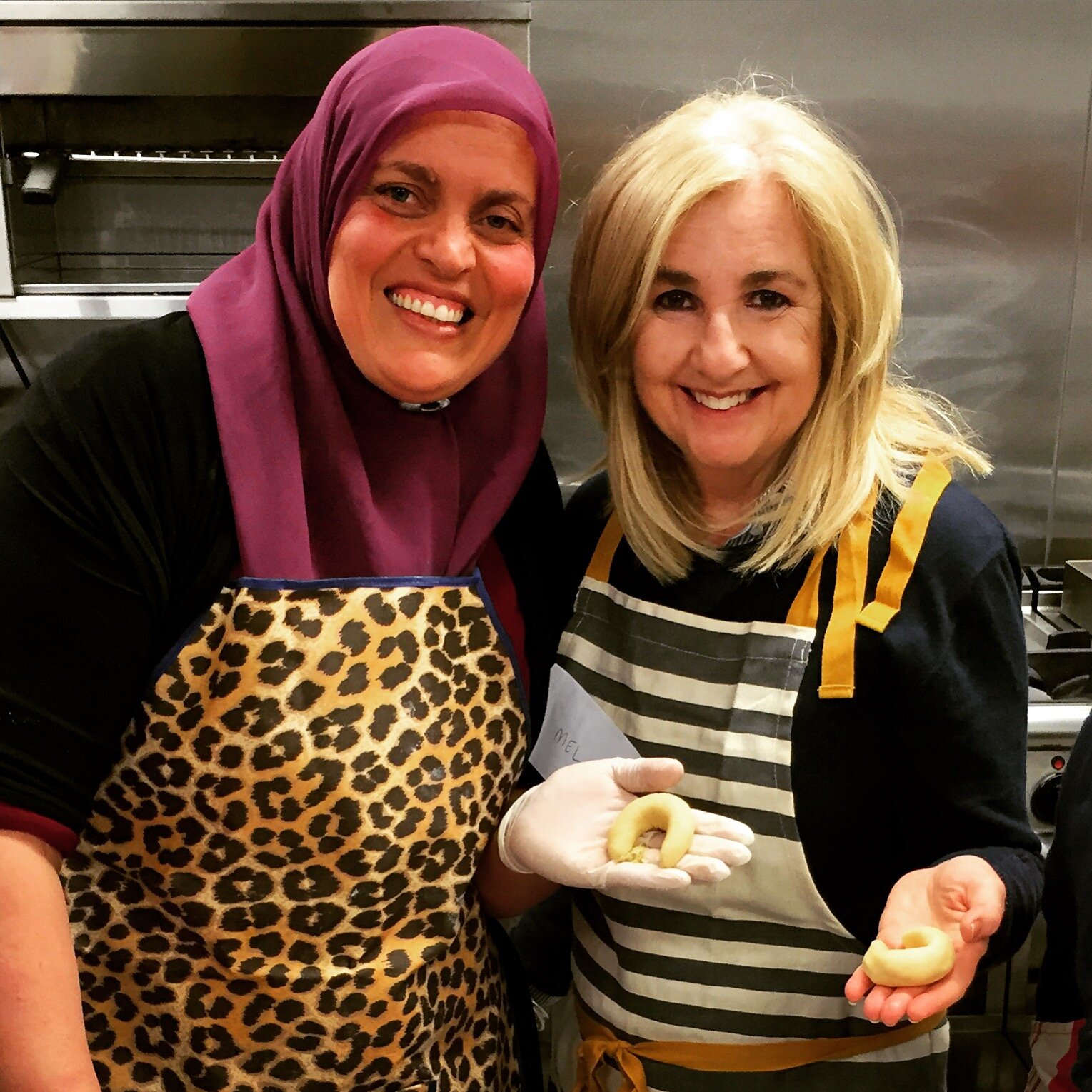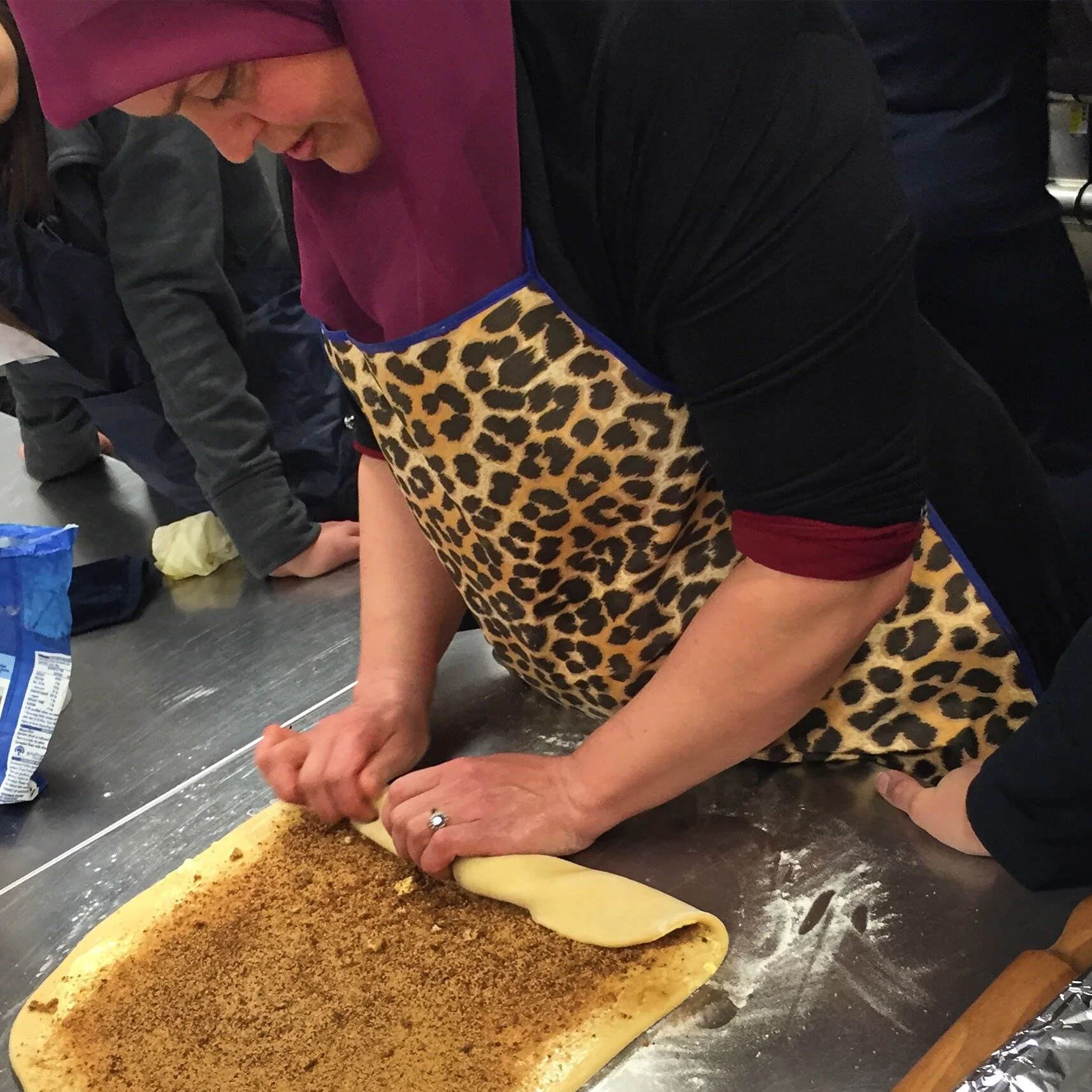Tolerance and Respect.
Melissa Don Port with Farida, a Muslim Jewish Berber.
We can all learn from the Berber's.
One of the most fascinating stories and one that I have researched further over the years, it that of Farida’s past, as a Muslim Berber. Farida was born to Muslim parents, and married a Jewish Berber. Farida is a practising Muslim, and also follows many of the Jewish traditions, taught to her by her mother-in-law. From keeping kosher to making challah, Farida, like many Berber women, observe both the Muslim and Jewish traditions.
The Berbers are an indigenous ethnic group of the Maghreb region of North Africa. The Muslim Jewish Berber communities were created with the expulsion of Jews throughout Europe over the centuries, plus the Arab invasion, forcing this Muslim community to the Algerian mountains.
In Algeria, before the Arab invasion and conquest in the seventh century, the population was almost entirely Berber, and along with those who followed traditional Berber religious practices, a considerable Christian population flourished. When the Arabs swept in, subjugating the Berbers, they brought with them an Islam that replaced Christianity. Even after many Berbers converted, they were treated by the Arabs as second-class Muslims, heavily taxed, and even enslaved. Islamization was accompanied by what we call “Arabization,” which was a complicated and lengthy process.
Jewish refugees from Spain after 1492 were also welcome throughout the Muslim world, largely for economic reasons and spread throughout the Mediterranean, but mostly to North Africa. The majority settled in Fez or Marrakesh, transforming Morocco’s greatest cities at the time into centres of Jewish economic, cultural and scholarly activity.
Moroccan Jews settled in the Algerian countryside, remaining among the native Muslim Berbers there for nearly 500 years. Among the founders of these Jewish-Berber communities was Shlomo bel Hensh.
The Berbers today live in scattered communities across Morocco, Algeria, Tunisia, Libya, Egypt, Mali, Niger, and Mauretania. Presently, about one-sixth of the population of Maghreb speaks one of the Berber languages (mostly in Algeria and Morocco), but most of them also speak some form of Arabic.
Further reading:
“Migrations often accompanied Muslim invasions and expansions. They were a frequent phenomenon not only immediately after the conquest of new territories, but also as a consequence of many later military campaigns or other circumstances. Since details about long‐term shifts in the centre of life of Arabs and Berbers in the surviving sources are rare, reliable information about the number, provenance, and duration of stay of new settlers in the Maghreb and parts of Europe during the Middle Ages is hard to find and difficult to estimate. This is aggravated by the fact that not every occupation of a region led to the establishment of a new leadership, which at least temporarily could create basic conditions for significant civilian settlement. In addition, the number of Muslim traders and slaves who stayed for longer periods in the occupied territories is completely uncertain. Therefore, this essay is focused on migrations of greater groups of Muslims, especially during the first phases of new dominations, and develops some major causes and consequences of these new settlements. In this context, the designations “Arab” and “Berber” are used for Muslims of different ethnic descent. But where this distinction cannot be made precisely, the general term “Muslim” is used, with the qualification that it always includes an unquantifiable number of non‐Muslims, especially when talking about military forces. In all new territories ruled by Arabs and Berbers, non‐converted Christian and Jewish populations fell under Muslim protection (ḏimma). With the ǧizya (a type of religious poll tax) they had to pay a higher tax burden than (converted) Muslims. The main medieval Arabic, Greek, and Latin sources concerning Muslims in the Maghreb and parts of Europe are collected in Amari 1933, Vasiliev (1935–68), Lévi‐Provençal (1950–53), Talbi 1966, Laroui 1977, and Abun‐Nasr 1987.”
References:
https://www.newenglishreview.org/Hugh_Fitzgerald/The_Berbers_and_Islam_as_a_Vehicle_for_Arab_Supremacism/
https://onlinelibrary.wiley.com/doi/pdf/10.1002/9781444351071.wbeghm064
https://www.britannica.com/place/North-Africa/From-the-Arab-conquest-to-1830




